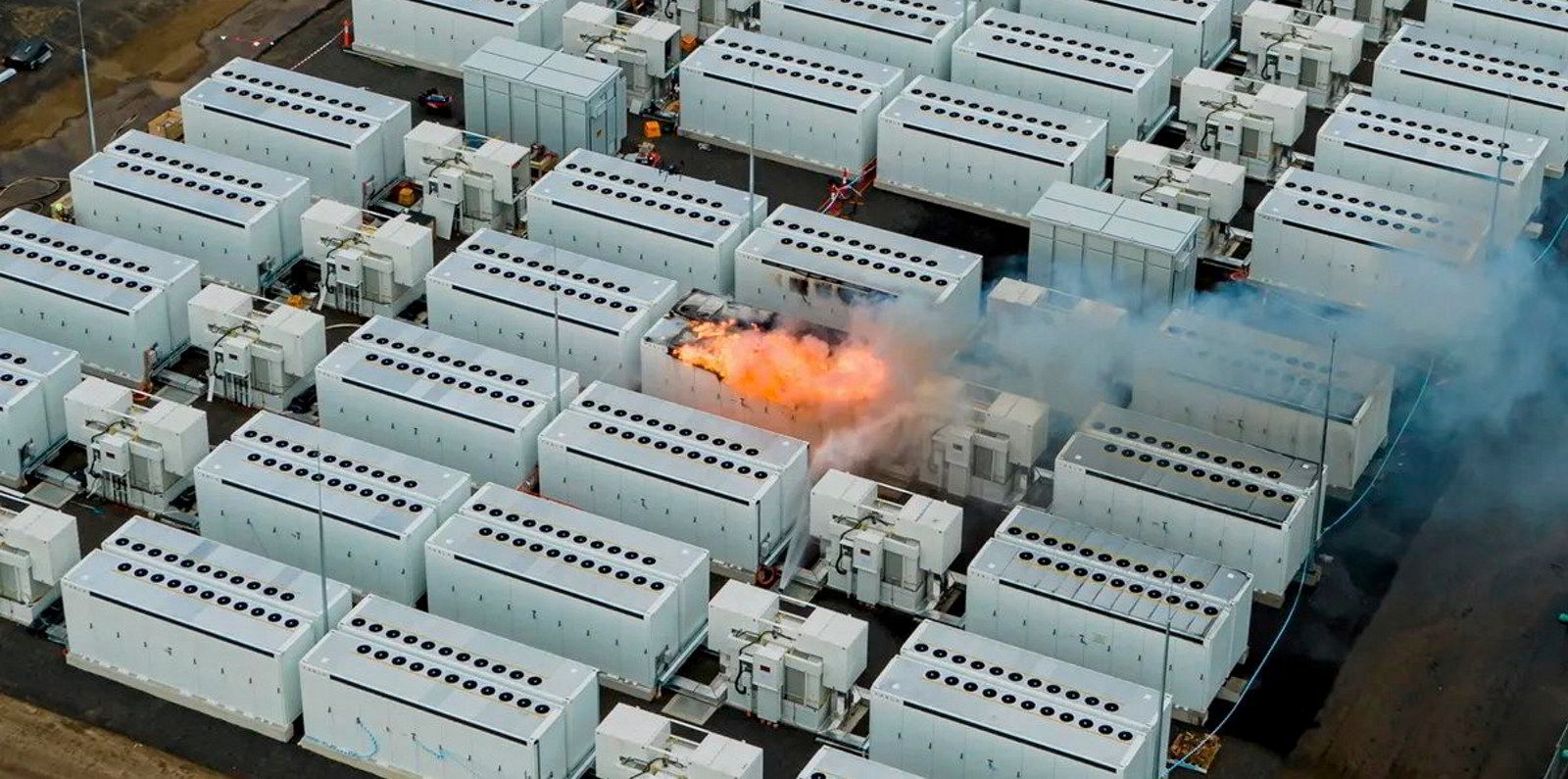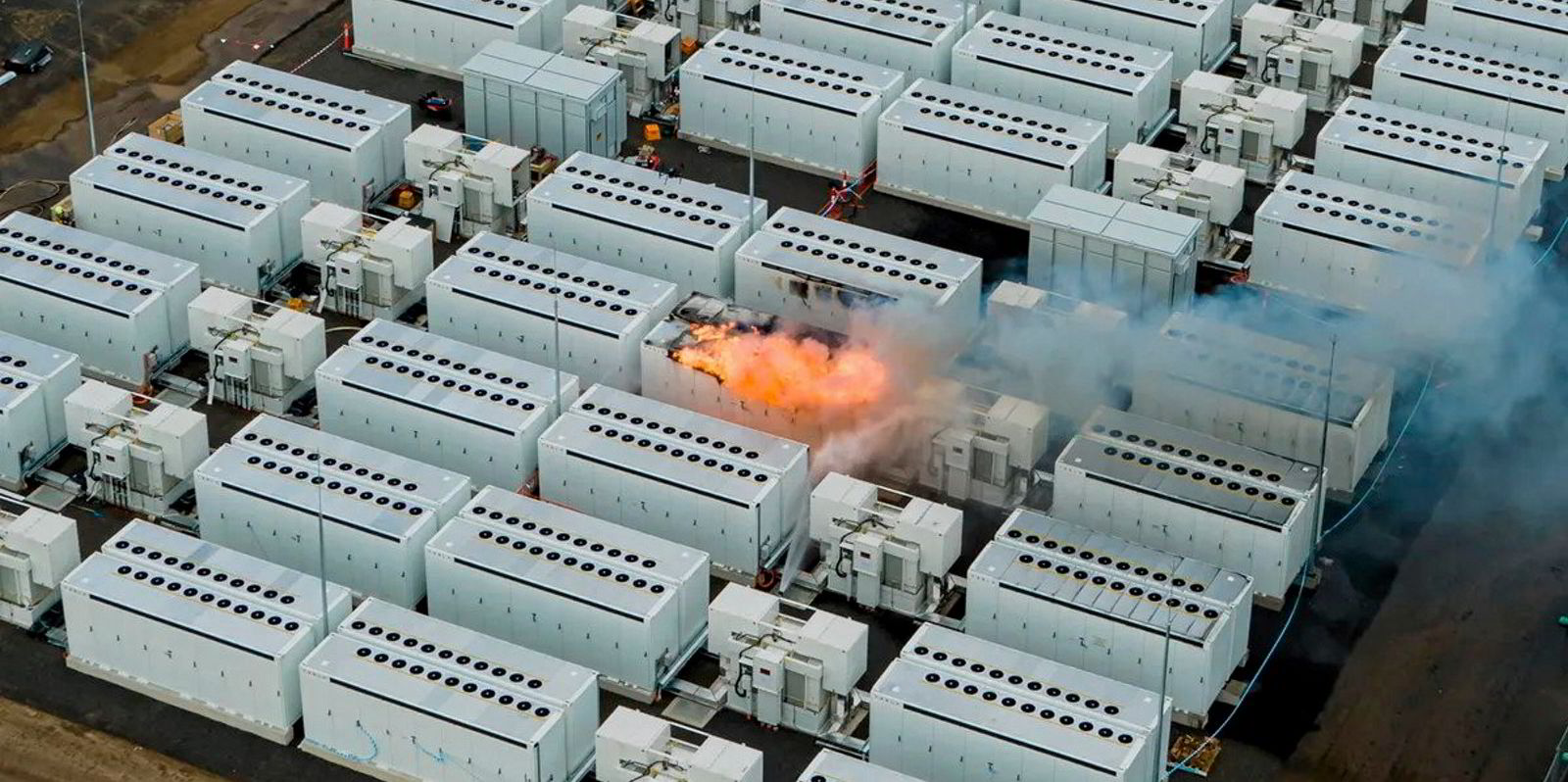Scientists claim to have cracked the best way to extinguish lithium-ion battery fires, an increasing concern for fire departments the world over, with ‘dry water’ the key to putting blazes to bed.
Lithium-ion batteries are found in everything from mobile phones and laptops to e-scooters and electric cars.
They are also the backbone of large-scale energy storage systems, which will be crucial to helping store energy from intermittent wind and solar power plants as the world moves towards net zero.
But while their high power density and long life cycles have made them indispensable to the 21st century, they have a tendency to go up in flames. And when they do, they are extremely hard to put out.
This is because lithium-ion battery fires generate their own oxygen. So while water-based fire extinguishers help cool down blazing batteries they can only rarely put out fires entirely.
The publicity around the fires is already stoking fears among communities in the vicinity of planned Li-ion storage projects, with such concerns now regularly mentioned during consultations.
Fire departments worldwide have been struggling with how best to tackle such blazes, with many now taking the approach to simply “let it burn”.
Researchers from the Civil Aviation University of China believe they now have a better idea: dry water.
In a paper published in the Journal of Energy Storage, the researchers said that many other extinguishers have been looked into for fighting lithium-ion battery fires, including foam, CO2 and dry powder. However these all had “poor cooling effects”.
Water has an “outstanding cooling effect” and benefits from being environmentally friendly and low-cost.
But it has a “fatal flaw,” which is that it conducts electricity, which can cause external short circuits of batteries and “lead to secondary accidents”.
The researchers investigated the use of dry water as an extinguisher for lithium-ion battery fires. Dry water is an air-water emulsion that looks like a very fine powder but behaves more like a liquid when it moves.
Dry water is not very conductive due to its “discontinuous” state, said the researchers.
It also evaporates faster than liquid water, which brings a “better cooling effect” in suppressing thermal runaway propagation.
Dry water therefore “combines the advantages of both liquid water (high cooling ability) and dry powder (low conductivity),” found the researchers, who said it has “great application potential” to control lithium-ion battery fires.
Lead researcher Xiutao Li tells Recharge that there are currently more than 5,000 large-scale energy storage facilities worldwide, with more than 70 fire accidents reported to have occurred.
The likelihood of a fire at such a facility is therefore 1.52%, he said.
Energy storage facilities can not only endanger life and property, but are also “critical infrastructure” for power networks, so there is an “extremely high cost of trial and error” when it comes to their maintenance.
With this breakthrough, Li said his team have found a “novel approach for developing the ideal extinguishant for lithium-ion battery fires.”




